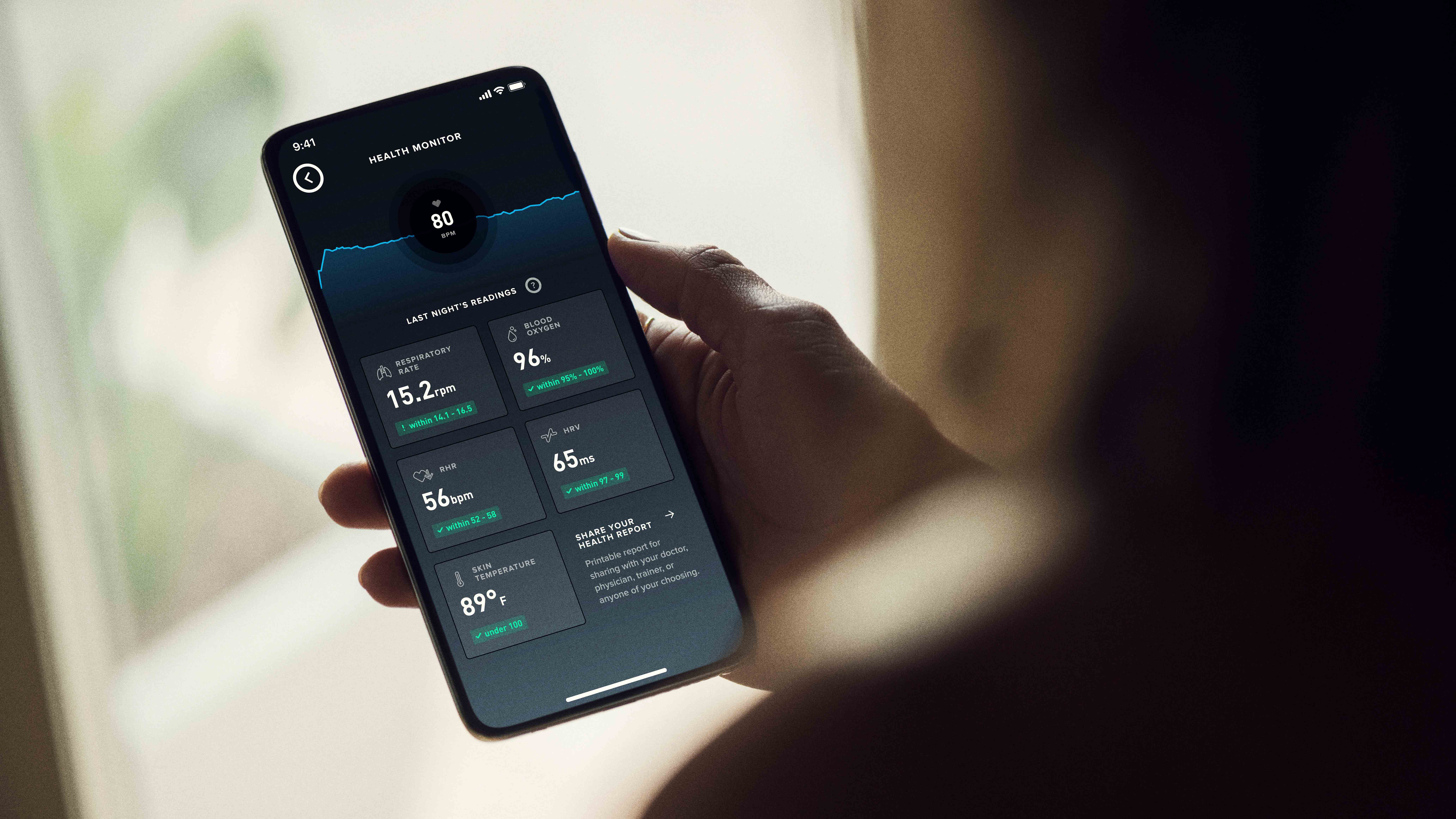

AI influences more areas of our lives as time goes on, whether we like it or not, people. From what we listen to and watch to what we read and stare at on social media – those are all determined by machine learning algorithms. It only makes sense for AI to start telling us how to train and recover, and there is no better platform to trial this than Whoop.
Whoop's unique, strain-focused training and recovery system long appealed to athletes who like to push their limits, as it can help them better understand how much exercise and sleep they need for optimum performance day after day (read my Whoop review for more info on this).
I like Whoop's approach as it simplifies health data; you're presented with one number, your Strain Score, which is calculated automatically. All you have to do is war the Whoop Strap 24/7, and the algorithm works out everything for you. It's a simple and effective way to monitor your fitness, so it's no wonder Whoop is considered one of the best fitness trackers for serious amateur athletes.
However, passive activity tracking will only get you so far. With the advent ChatGPT-like AI chatbots, it was only a matter of time before this technology was used for more than just generating pop song lyrics. After all, most health apps collect tons of health data about you, allowing them to advise you on how to train better. Only if there was a way to access this data simply yet effectively...
What's Whoop Coach?
Enter Whoop Coach. The idea is that Whoop's algorithm analyses its in-depth knowledge of your goals and your unique biometric data to deliver personalised guidance on demand based on the latest performance science. For instance, you can ask Whoop Coach, 'Why am I so tired?' and it sifts through thousands of your data points to identify why you’re feeling the way you are – and exactly what affects performance.
You should also be able to ask Whoop Coach even more specific questions, such as, "I have a 5k next month with a goal of running it in 24 minutes, can you build me a training program?" Then, the algorithm would compile custom-designed plans to achieve this goal.
It's all very exciting, especially the fact that information offered by Whoop Coach should be highly personalised. The feature uses your data to create plans and answer questions about strain, sleep, training and more. And considering Whoop's users – people who tend to be more active than the general population – I can see the appeal of a feature like WHoop Coach.
Sign up to the T3 newsletter for smarter living straight to your inbox
Get all the latest news, reviews, deals and buying guides on gorgeous tech, home and active products from the T3 experts
Ask-me-anything with Whoop Coach
I tested the beta version, which had its limitations compared to the version you'll be able to use. The answers generated by Whoop Coach weren't quite as personal as I wanted them to be, but offered some insight into training, nevertheless. One thing I learned pretty quickly is that you need to be precise with what you want to know; asking generic questions like, 'How was my sleep?' will only result in generic answers.
The other caveat of using the feature is that you need to wear the strap continuously, which I'm sure most Whoop users do. The brand makes it easy to do, even if you like not to wear anything strapped around your wrist, thanks to the Whoop Body collection, which consists of apparel options with little pockets to store the heart rate sensor.
You can wear Whoop Body underwear for sleeping, freeing up your wrists, and without compromising data collection. Whoop Body apparel isn't free, but it's an option for those who simply can't cope with the idea of wearing the Whoop Strap continuously.

Like any machine learning feature, the Whoop Coach will only improve over time. The more you wear your straps and the more Journal entries you log – essential for accurate recommendations, I was told – the better the algorithm can determine what you need and how much exercise/rest/etc. it should suggest.
I can see the appeal of the Whoop Coach diminishing over time. Once you have asked a few questions, you'll return to logging your data and keeping your eye on your Strain Score. That said, Whoop Coach makes it easy to search the database and get recommendations when needed, which is a bonus for people who race often or have the drive and curiosity to understand their bodies better.
Finally, it's worth mentioning that interacting with Whoop Coach isn't a must. You don't have to ask questions or turn the feature off in the More tab>App Settings>Whoop Coach menu. Still, I doubt you wouldn't be interested in some personalised insights about yourself if you're a Whoop user, and considering it doesn't cost a penny extra, there really isn't anything to complain about.
To find out more about the new Whoop Coach feature, visit Whoop today.

Matt Kollat is a journalist and content creator who works for T3.com and its magazine counterpart as an Active Editor. His areas of expertise include wearables, drones, fitness equipment, nutrition and outdoor gear. He joined T3 in 2019. His byline appears in several publications, including Techradar and Fit&Well, and more. Matt also collaborated with other content creators (e.g. Garage Gym Reviews) and judged many awards, such as the European Specialist Sports Nutrition Alliance's ESSNawards. When he isn't working out, running or cycling, you'll find him roaming the countryside and trying out new podcasting and content creation equipment.

